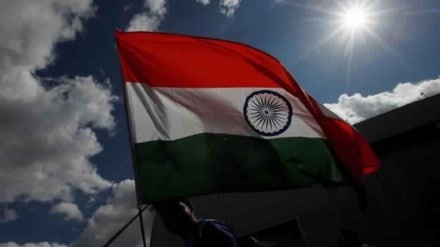By Anita Inder Singh
Political parleys between India and Western countries are usually sugared with talk about the invaluable ties between democracies. Despite India’s neutrality on Russia’s invasion of Ukraine and its huge oil buys from Russia over the last two years, its relations with the US and European Union remain friendly. But, complications arising from Western sanctions on Russia and the China-Russia cooperation on hi-tech could affect India and its ties with the West.
Recently, the EU announced that it would sanction companies or people in 27 countries including India, Russia, Iran, China, and Syria that have some connection to Russia’s defence and security sector. They are helping Russia to get around Western sanctions with dual use items that can be used for both civilian and military applications such as technology, satellites or drones.
The contrasting responses of the West and India to Russia’s aggression in Ukraine show up some strains. The US and EU hold that Russia poses an immediate threat to Europe and the free and open international system, recklessly flouting the basic laws of the international order.
Like China, India has abstained from condemning Russia’s invasion. Whether out of indifference or annoyance, so far, no Western country has responded to Union external affairs minister S Jaishankar’s recent statement that Russia has never hurt India’s interests. Delhi may be thinking that isolating Russia will drive Moscow into Beijing’s embrace and weaken Russia’s willingness to support India’s interests when they conflict with those of China. But Russia has never supported India without taking into consideration its own relationship with China. For instance, Moscow was neutral when Chinese and Indian troops clashed on their shared border in 2020. Moreover, Moscow sided with Beijing in the 1962 India-China war and provided Beijing with diplomatic and intelligence support. It also delayed delivery of MIG fighter jets to India. Russia’s 1971 treaty of friendship with India was facilitated by the fact that Chinese and Soviet troops engaged in skirmishes on the Sino-Russian border in 1969. Currently, strong economic and military ties define the “no-limits” Russia-China partnership. Having mounted its destructive invasion of Ukraine, Russia has failed to deliver its promised military equipment to India, and Delhi is exploring western options.
The US and India have been strengthening their defence relationship over the last decade but Washington will not share critical technology with a non-ally. Washington is also concerned that Russian military platforms—the result of India’s long dependence on Russia—are technologically incompatible with those of the US. Moreover, India cannot do much to help the US to deter China’s expansionism in the Indo-Pacific, because its top security priority is its immediate Indian Ocean neighbourhood. And India’s defence spending is less than one-third of China.
With Russian President Vladimir Putin warning of nuclear strikes, Russia’s war in Ukraine threatens Europe. The West is concerned that Russian missile strikes on Ukraine have been made possible with Chinese help. China is providing Russia—if not with weapons—then with components which enable Russia to manufacture them. The West believes that Moscow is circumventing sanctions to obtain the components necessary for the manufacture of state-of-the art weapons and that China is giving Russia dual use materials and components for military production.
Times have changed. Until Russia invaded Ukraine in February 2022, China was Russia’s second-largest arms buyer. India remains Moscow’s largest military customer. “Ukraine 2022” has made Russia militarily dependent on China, which has been silent about its military aid to Moscow. Despite backing Moscow politically and diplomatically, Beijing has declared that it will not send weapons to Russia or Ukraine. But in January 2024, the Russian defence ministry stated that Chinese defence minister Dong Jun confirmed China’s support to Russia during a bilateral video meeting.
The West is keeping watch on Russia’s military dependence on China for technologies and components. India should follow suit—partly because of its longstanding border dispute with China, partly because it cannot afford to alienate the US strategically and economically. And its strong economic ties with the EU and the US are essential for its progress.
While India is trying to strengthen ties with the West, its import of Russian oil and defence ties with Russia could rule out closer defence cooperation with the US. So far, the West has been largely understanding about India’s strategic problems with China. But Moscow’s warmongering and threats to launch nuclear strikes as it gets some military help from China will stiffen the West’s resolve against Russia and could strain ties between India and the West, especially if Delhi praises Russia as the do-gooder to India.
Like Russia, India favours a multipolar global order—which means that it doesn’t want to be pushed around by the US world sheriff. But unlike China and Russia, India is not anti-West, if only because its second and third largest military suppliers are the US and France. The US and France can offer India some arms and many projects for economic development. By contrast, a warring Russia, whose main strategic aim is to extinguish Ukraine’s statehood, no matter how long it takes, will not be able to offer either for a considerable time to come.
The choice before India is clear. It should avoid getting stuck in the West-Russia-China strategic cat’s cradle. Instead, it should strengthen constructive and beneficial strategic and economic relationships with the West.
The author is a Founding professor at Centre for Peace and Conflict Resolution, New Delhi
Views are personal
